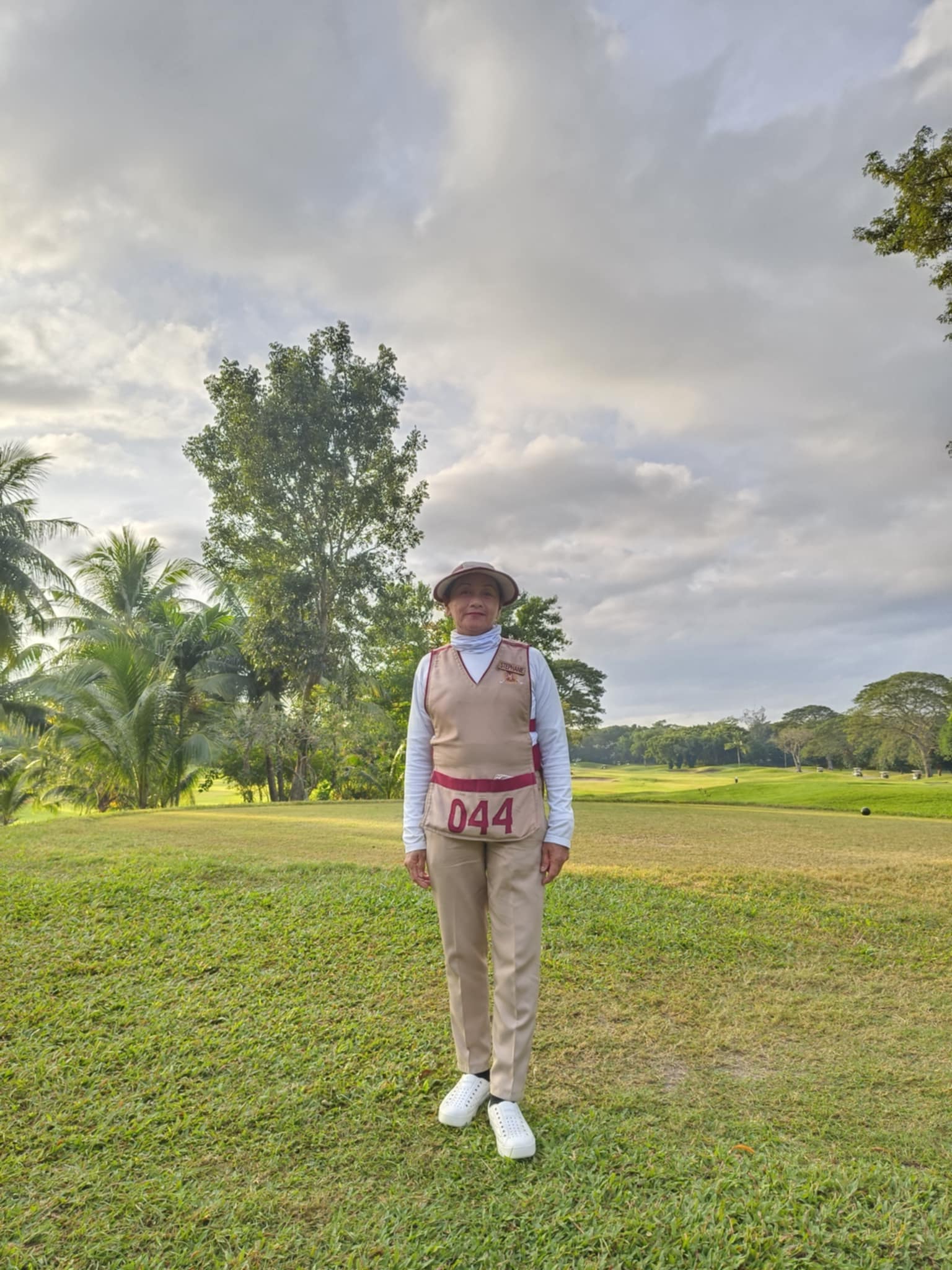A golfer's essential partner
Stephanie Teves: 'My work helped me achieve my dreams in life'
Golf has always been a way of life for Stephanie Teves. Not as a player, but as a caddie.
It wasn’t exactly planned. All she wanted back then was to find a job that would support her daily needs, and she found an opportunity to apply as a caddie at the Manila Southwoods Golf and Country Club in 2000.
She wasn’t familiar with the sport and the job that needed to be done, but she was willing to learn.
Her perseverance paid off. “My work as a caddie helped me achieve my dreams in life.” said Teves in Filipino.
Like any other job, being a caddie is not as easy as it looks. As soon as her application was accepted, she immediately went into training by tagging along and observing the experienced caddies.
“Before we started each training session, I was introduced to the player to explain that I will be training on that flight,” she explained.
She soon found out that the job is more than just carrying a golfer’s clubs and equipment around the course. Teves learned that being a caddie entails focus and precision as she needs to give practical support by managing the player’s clubs, offering strategic advice on club selection, reading greens, estimating distances, and helping with the basic course maintenance like replacing divots and raking bunkers.

A caddie acts like a partner to the player throughout the course. The job also requires strong physical conditioning. Carrying golf bags and walking around 18 holes on the golf course for hours can be exhausting, but Teves had no complaints. She enjoyed mingling with different kinds of people.
“I’m happy to be of service to these people. There are players who like to chat and joke around, but there are also players who are just quiet. I really don’t mind. I just want to do my job,” she said.
Aside from tagging along on the course, Teves said she had to attend numerous briefings and exams from trainers and management before she was officially given a “caddie number,” which determines when they can be of service to a player.
“Our trainers and management were really strict. I trained for almost one year before I was given a caddie number,” Teves said.
She said the caddie rate during her first year was low, starting at ₱350 to ₱450 per flight, plus tips from players.
“I love my job, so sometimes, there are other players who request for my services. There are players who give me big tips because they know I worked hard,” she said.
She fondly remembered getting starstruck with politicians and mingling with foreign nationalities, never imagining that a simple person like her would be able to interact with people like them. She also remembered those who have gone the extra mile to give her big tips, because it meant that they appreciated her work.
“One time I was given ₱1,000 or more. I was really grateful because the amount meant a lot to me,” Teves said.
She also has a soft spot for those who personally request for her services, and to those who were interested to ask about her personal stories. But here were also others who weren’t generous and kind.
“There was a time during my early years when some players would make fun of me by driving the cart too fast, so I have to walk faster to catch up,” Teves said.
“But I understand. People have different attitudes. It’s part of my job,” she added.
Accidents were also inevitable. “One time, my player’s shot went into the water hazard. While trying to locate it, I slipped and fell. Good thing my player was considerate and asked for a new caddie so that I could have myself checked up,” Teves said.
She is usually assigned two flights a day, which can be physically draining, but she didn’t mind because that all went to supporting her family. She was able to send her children to college, one of them to De La Salle University. She said a family member had an accident which forced her children to stop school but that did not stop them from getting good stable jobs, and later having their own families.
Life was tough, she said, but they soldiered on. A widow for 11 years, Teves said all she wanted was to have a small place of her own. Now 55, she hopes that in six years, she will be able to retire in the province.
Meanwhile, her life as a caddie goes on. “For now, I still enjoy being a caddie.”